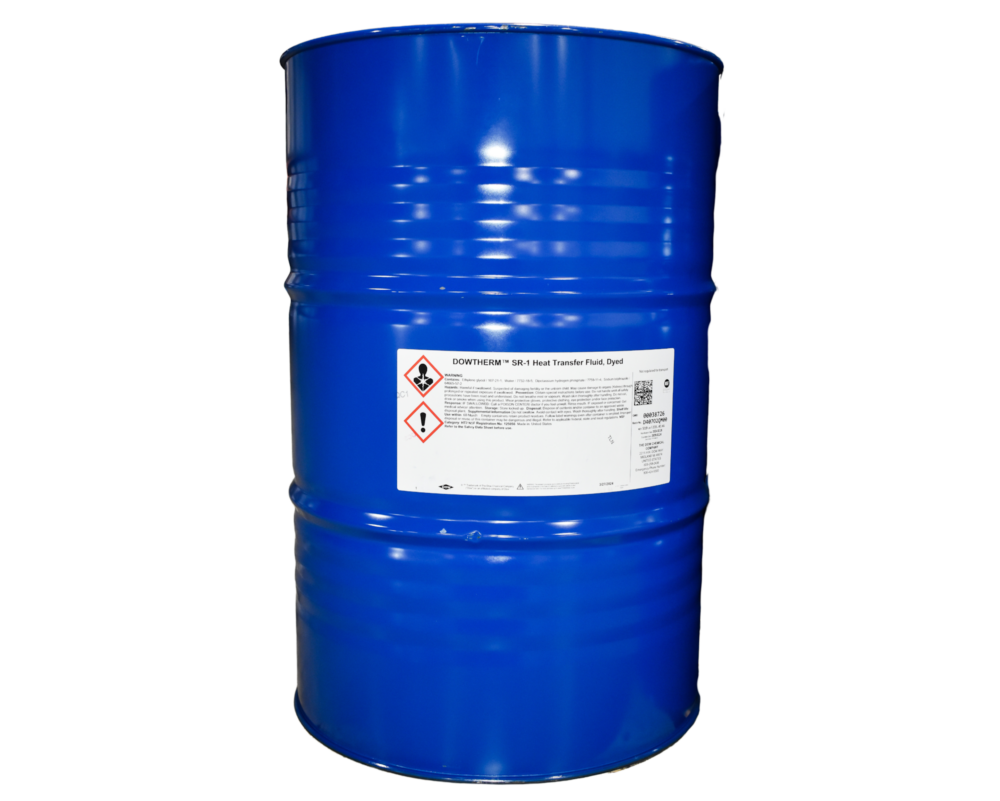Recognizing the Duty of Heat Transfer Fluid in Reliable Power Solutions
Recognizing the Duty of Heat Transfer Fluid in Reliable Power Solutions
Blog Article
Why Warmth Transfer Fluid Is Necessary for Optimizing Energy Transfer in Equipment
The function of heat transfer fluids in maximizing energy transfer is essential for attaining efficient thermal administration throughout numerous commercial fields. These fluids assist in seamless heat exchange, making sure procedures operate within optimum temperature varieties and reducing the threat of getting too hot. Their option, based upon aspects like thickness and thermal security, directly influences the effectiveness and sustainability of a system. Nonetheless, the details of picking the appropriate liquid are commonly taken too lightly. What are the vital considerations for this selection, and just how do they impact both financial efficiency and environmental obligation in commercial applications?

Function in Thermal Monitoring
Warmth transfer fluids play an essential function in thermal administration by efficiently regulating temperatures in different commercial procedures and systems. These specialized fluids assist in the transfer of heat in between different elements, making sure ideal operating conditions and stopping getting too hot. By preserving accurate temperature control, heat transfer liquids enable sectors such as chemical manufacturing, oil and gas, and power generation to operate safely and successfully.
The selection of an ideal warmth transfer fluid relies on several variables, consisting of thermal stability, heat capability, and thickness. High thermal stability makes sure that the liquid can withstand severe temperature levels without breaking down, while a high warm capacity permits it to take in and launch significant amounts of warm - heat transfer fluid. Reduced viscosity decreases the energy required for pumping, adding to overall system effectiveness
Moreover, warmth transfer liquids are essential in applications like refrigeration, where they help soak up and dissipate warm throughout the cooling cycle. In solar thermal power systems, these fluids capture and transportation solar warm to produce electricity or give warm water. Their adaptability to diverse operating conditions and capability to preserve regular thermal efficiency emphasize their relevance in industrial thermal monitoring, assisting in operational connection and improving precaution.

Enhancing System Effectiveness
To make the most of the advantages of thermal monitoring, boosting system performance with the critical use of warmth transfer liquids is critical. By keeping optimum temperature levels, warm transfer fluids assist make certain that systems operate within their developed parameters, therefore avoiding overheating and reducing the risk of element failing.

Sorts Of Heat Transfer Fluids
The diversity of heat transfer liquids highlights their important duty in a series of industrial applications, each tailored to meet certain thermal management requirements. These liquids promote reliable energy transfer and are picked based on key residential or commercial properties such as thermal stability, viscosity, and heat capacity. browse around this web-site The main kinds consist of water, glycol options, oils, and synthetics, each offering unique advantages.
Water is the most common heat transfer tool due to its high details warm capability and reduced expense. Mineral oils are favored for their thermal stability and non-corrosive nature, making them suitable for high-temperature applications.

These liquids make certain exceptional performance in systems where traditional fluids may fail. The choice of a warm transfer liquid is essential, as it affects system performance, security, and long life.
Environmental and Economic Advantages
Utilizing the best heat transfer fluids supplies considerable ecological and economic advantages for commercial operations. By selecting liquids with premium thermal security and high warmth capacity, industries can improve energy efficiency, leading to minimized gas usage and reduced greenhouse gas emissions. This adds to a smaller carbon impact and aligns with global sustainability objectives. Ecologically pleasant warm transfer fluids, typically biodegradable and non-toxic, lessen the risk of dirt and water contamination in the occasion of leaks or spills, therefore protecting environments and complying with stringent environmental laws.
Financially, the best heat transfer liquid can considerably lower operational expenses. Efficient heat transfer reduces power expenditure, bring about reduced energy costs and improved productivity. Fluids with extended lifecycle efficiency reduce the frequency of replacements and upkeep, decreasing downtime and associated costs. Purchasing high-quality fluids can likewise mitigate the threat of devices rust and failure, preventing pricey fixings and prolonging the lifespan of essential framework. In open markets, these financial savings and performances provide a distinctive benefit, permitting firms to allocate resources a lot more properly and purchase further technology. In general, the critical use ideal heat transfer fluids sustains lasting financial growth and ecological stewardship.
Picking the Right Fluid
Exactly how does one browse the intricate process of choosing the ideal warmth transfer fluid for industrial applications? Selecting the appropriate fluid is critical, as it directly influences system effectiveness, safety, and operational expenses. Secret considerations consist of thermal stability, compatibility with system materials, and running temperature level array. Thermal stability makes certain the liquid can endure heats without degrading, while compatibility avoids deterioration or various other damaging responses with system elements. The operating temperature level variety need to line up with the system's needs to preserve performance and durability - heat transfer fluid.
Additionally, the fluid's warmth capability and viscosity are vital. A high heat ability enables the fluid to soak up and move even more power, improving performance.
Final Thought
The critical option and application of warmth transfer fluids are basic to optimizing energy transfer across different systems. By webpage guaranteeing high thermal security and capability, these liquids provide precise temperature level control and improve overall system efficiency. This optimization contributes to reduced functional expenses and reduced greenhouse gas emissions, thus advertising sustainability. The option of fluid, tailored to details viscosity and functional needs, is essential for taking click for more info full advantage of performance and attaining economic and ecological benefits in industrial processes.
Report this page